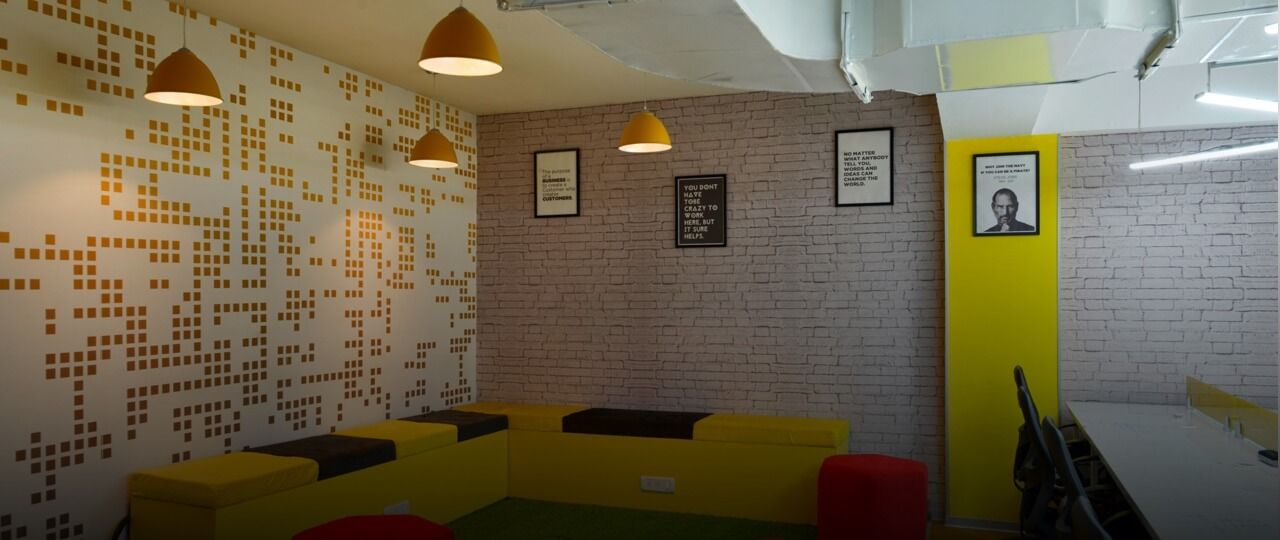Indiqube, co-founded by Rishi Das and Meghna Agarwal, is taking responsibility for primary infrastructure requirements of startups and SMBs in Bengaluru’s mid-market segment by offering co-managed office spaces.

While the startup culture in India has taken strong roots in the past few years, especially in Bengaluru, it is also seeing a trend wherein entrepreneurs are playing it smart by resorting to plug and play offices rather than setting up an office of their own; a reason being, investing in office spaces in nascent stages eats into the company’s already meagre resources, and such spaces also allow the founders to focus on the core business rather than on administration and maintenance.
It is this opportunity that Rishi Das wanted to capitalise on, and the eureka moment happened thus. When Das was running Careernet, with his brother and co-founder Anshuman Das, the company had acquired 100,000 sq. ft of space in Bengaluru in 2013 but was using only half of it. Having readied the interiors and infrastructure, it decided to rent out the unoccupied space till its already 1000-strong team expanded further. When in 2015, the need arose, the client company occupying the space entrusted the responsibility of finding and managing new space for them. Realising this was not an isolated requirement, as there was a large gap in mid-market spaces in the city, Das along with Meghna Agarwal, founded Indiqube in 2015.
The Changing Needs
Initially, the founders invested Rs. 40 crore through self-accruals and debt, and Indiqube is looking to raise Rs. 100 crore in equity in the next two quarters to occupy a million square feet of space. “In the initial stages, convincing landlords to give us space was very difficult, since they were used to dealing with the lessee directly,” points out Das. But after they managed to acquire two to three buildings, the process became easier.
The demand is certainly high. An industry estimate suggests that there is a need for 40 million square feet of new office space in the country. “Out of this, 70 per cent belongs to those who employ less than 200 people. The SMB segment is where the market is,” he adds. Amongst Indian cities, Bengaluru is where the demand for such spaces is the greatest, which Das believes will work to Indiqube’s advantage.
From 5×5 cabins, today workspaces are narrowing down to 4×2. There is no need for a bulky monitor or other paraphernalia, paperwork has come down, cloud servers have eliminated the need for server rooms, and WiFi is being replaced by broadband.
The challenge is that India is not one country. Every city, every region is different. We got our model right in Bengaluru, and now we need to understand the need in other regions.
Interestingly, office interiors can be modified easily these days, to suit the requirements of a new customer (company). “The biggest challenge is that startups don’t know how they will grow in the next three years. This makes it difficult for them to plan space,” points out Das. Hence, hiring ready- to-use spaces makes it convenient for them to expand as needed. In fact, Indiqube also offers board room spaces for companies, when needed.
…And Growing
From the 300,000 sq. ft. of space the company had acquired in March 2017, it has already added another 400,000 sq. ft. of space (recently) and hopes to expand this to 1,000,000 sq. ft by March 2018. In terms of growth rate, while it is currently growing at 200 per cent, it expects to stabilise at 70 to 80 percent year-on-year growth over the years.
Das clearly indicates that while the focus of Indiqube will continue to remain Bengaluru; Gurgaon, Pune, Hyderabad and Chennai are also on the anvil. “The challenge is that every city, every region is different in India. We got our model right in Bengaluru, and now we need to understand the need in other regions,” he explains. Secondly, he believes there is a need to create awareness about the advantages of managed workspaces as there is still some scepticism around the need for it.
Moving Forward
Indiqube currently employs 100 people directly and outsources blue-collar jobs. “The business is people driven, but not people intensive,” explains Das as he shares the vision for the next three years for which he expects the team size to suffice. Training to keep the staff up to date on the changing requirements of its customers is key to be able to service them efficiently. “In three years, we expect managed workspace to be the next version of how corporates look for office spaces. And, Indiqube should be a catalyst in this change. We would like to be thought leaders in this space,” he says.
Currently, the international market does not excite the company as much, since the scope for scale is low. But from the point of view of having a presence, Indiqube intends to form partnerships in the foreseeable future, to provide Indian executives traveling abroad, a workspace. That being said, the immediate focus for them is to tap the top 10 cities in India.

Snapshot: Indiqube
Founders: Rishi Das, Meghna Agarwal
Focus: Managed workspaces; Indiqube plans to manage 1 million sq. feet of space by March 2018.
Funding: Internal accruals + debt. Looking to raise Rs. 100cr in equity
Founded in: 2015
In brief
Rishi Das, along with his brother Anshuman Das, had been successfully running a recruitment services company, Careernet, and had invested in excess space with future expansions in mind. In the time till they achieved their goals, they rented the space out. When the time came to reclaim it, they were surprised by the demand for such managed workspaces among startups. Further research showed the growing demand for such spaces, especially in Bangalore, and they decided to capitalise on it by setting up Indiqube in 2015. Indiqube was setup with internal accruals and has grown to 700,000 sq. ft of space in 2.5 years. The company aims to expand to 1,000,000 sq. ft by the end of this fiscal and also expand to other cities. It will also be looking for external investments to fuel its growth.
